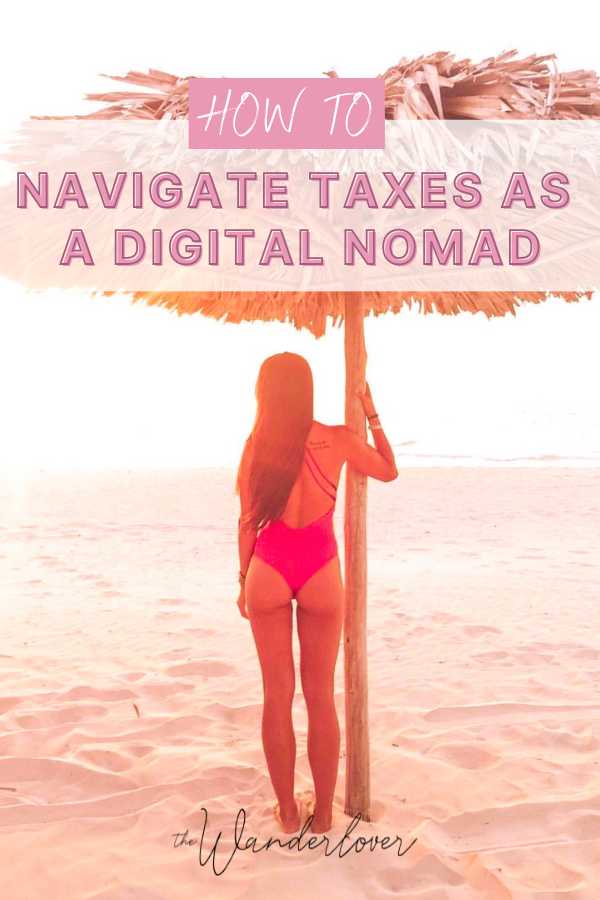Tune in or read the blog version below!
Quick Links
✧ Join the Digital Nomad Society for Just $7/Month
✧ Follow The Wanderlover Podcast on Instagram
Hi guys, Happy April! It’s going to be another hectic month.
We’ve been in La Saladita, Mexico for the past three weeks and we have our place until the middle of the month. We’ve been undecided on whether or not we want to extend because it’s already so crowded here. It’s so crowded in the water.
The wave is amazing, but there’s just so many people, and on the 19th of April, there’s actually going to be a longboarding competition where they’re flying in hundreds of competitors from around the world and it’s a week long event, and those who aren’t competing aren’t allowed to surf during the day.
So we’ve been toying with the idea of maybe moving to the next town over. We’ve also thought about going to Europe earlier, but I think we’ve decided, we haven’t booked flights yet or accommodation, but I think we are actually going back to Puerto Escondido for a few months and then Europe for the summer.
So that’s really exciting and I love just having this flow. I feel like I’m at a point where I’m very certain of what I want in life, what I want my experiences to be in each place. I know what I’m expecting.
I’m going back to my favorite places because I have these hubs now in the world and it feels very homey to be able to return to these hubs and have that time to really settle in and focus instead of feeling like I’m being rushed or go, go, go all the time.
I think it’s really healthy to have balance, but you really need to listen to yourself, listen to your body, listen to your mind, and give yourself what you need for the month, whether that is stability or planting roots somewhere or finding community, or maybe it is picking up and going on a road trip for a month.
Whatever it is that you feel like you need with an online business, it’s just such a blessing to be able to have the freedom and have the choice of doing what you want to do.
Introduction
So this episode is being released on April 10th, and if you are one of my American listeners, you’ll know that taxes are due on April 18th.
I’m celebrating this year because I’ve had so many conversations with clients, community members about their taxes because they are profitable, they are making money, and we want to optimize their tax structure so that they’re not overpaying to the IRS.
If you’re one of my listeners and you’re not in the community, I want to dedicate this episode to you so you know exactly how to wrap your mind around filing taxes as a digital nomad or even just keeping track of your business income and expenses through the year.
A lot of people hesitate to really learn about taxes because they see it as like this monster. They just play it up to be this really complicated thing that takes your money. It’s icky, so much bad energy around it, and people really dislike taxes, right? You always hear, I hate the IRS, like the tax man is here, whatever.
I’m going to help you shift that. I’m going to reframe that and and I’m going to break down that wall in your mind. I’m gonna break down that barrier and get rid of that monster because it’s not a monster.
Disclaimer
Before I get started though, I want to have a disclaimer here. I am not a CPA.
I work with an amazing accountant and I also have a CPA doing my taxes, and I’ve learned a lot. Like I studied finance in university, I took economics and a tax course at Cornell, so I’m very familiar with this.
I’ve done my taxes, my own taxes a bunch of times in the past, so I know how it works.
But again, consult a professional if you have any specific questions regarding your situation.
Adjusting Your Financial Mindset
So the first mindset reframe, I want you all to start adopting is I love paying taxes. I want to pay taxes.
When you pay taxes, it means that you are abundant in money, you are profitable, you’re not incurring loss for the year.
You’re making so much money and the more taxes that you pay, it means the more money you are making, right?
If we have this negative energy around taxes saying like, I don’t wanna pay taxes, like, oh, I have to give up $10,000, $30,000, a hundred thousand dollars in taxes, then you’re not going to want to make that amount that would then result in having to pay a six figure tax bill, right?
But imagine stating that intention. I want to make seven figures. I want to make tens of millions so that I can pay so much in taxes.
Do you see how that energy is already shifting? You want to pay taxes, right?
Obviously, we don’t want to overpay taxes, but we do want to pay. I’m going to teach you in this episode how to optimize your taxes, but in the grand scheme of things, we want to pay taxes.
Repeat after me. I love paying taxes and I want to pay taxes.
Open A Tax Bank Account
If you are in a position where you have no idea how even to get started with taxes, or maybe you are just beginning your your online business journey, you need to have solid foundations in order to not have this freak out when tax season comes.
This applies to all my clients, this applies if you’re all around the world, this isn’t specific to America. We want to make sure your finances are in check and you have a solid grasp on them, and you have your systems to keep track of all of your accounts.
If you are new to this, what I’m going to encourage you to do is to open up a completely separate account just for taxes. This is usually really easy to do if you have a business bank account.
You just ask to open up another one. If you have a personal checking account, just open up another personal checking. You just call them and it should be really fast.
But you’re going to dedicate this and rename it to be your tax account.
So every time you make money from your business, we’re going to make it a habit either every week, every two weeks, every month to transfer 20% at least.
Depending on where you are, you might have to transfer, transfer more or less, but transfer at least 20% into that account every single week or two weeks or month, whatever works best for you.
We don’t want to be surprised, right? When we need to pay taxes like we want to account for it as soon as that money hits our accounts.
Set Up Your Accounting
Once you have a separate tax account, then I want you to connect every single one of your accounts to either QuickBooks Online or QuickBooks Self-Employed.
You have to sign up for a monthly subscription, but it’s such an easy way for you to connect every single one of your accounts and you can swipe left or right depending on whether it’s a personal or business expense.
Get into the habit of tracking every single line item, whether that is income or whether that’s an expense. And what QuickBooks does is it will automatically categorize everything so that when tax season comes, it’s all already there.
It’s already calculated for you and you can just move all the numbers automatically into into a TurboTax. If you are self-employed, you also need to pay quarterly taxes.
So again, with the separate account, it’s going to be really easier for you to just transfer or link that tax account to the IRS. You already have cash sitting there.
One of my clients actually invest their tax money into a high yield savings account, and interest rates are so high right now, so if you want to collect interest on your tax money, you can also do that until you have to pay.
Deduct Business Expenses
And then when it it comes to filing your taxes, this is why I also really recommend QuickBooks if you don’t have an accountant, is because they let you know what exactly you can deduct.
As a freelancer, as a business owner, as a coach, a creative, a service based entrepreneur, they will tell you what you can deduct from your annual income. We obviously want to optimize this because if you don’t deduct everything, you are paying extra in taxes.
So some things that I deduct office space. If I am renting out an Airbnb and I use one of the bedrooms as my office space for a few months, that is tax deductible. If you have an office in your home and you are working from home, you can deduct that as a business expense.
You can also deduct things like Marketing, so Facebook ads, or if you purchase courses or coaching, anything you are reinvesting into your business, you can deduct as a business expense. Client gifts, that’s another one that’s not as big, but you can still deduct any gifts you purchase for your clients.
Foreign Earned Income Exclusion
Personally, because I live abroad and I am rarely in America, if you also do the same and you are traveling full-time, look into any foreign earned income exclusions. So for Americans, we have something called the FEIE, and if you are outside of the United States for more than 330 out of 365 days of the year, you can exclude your first, I believe it’s like $105,000 or $112,000 of your personal income from taxes.
So your first $105,000 or $112,000 is tax free, and that’s amazing, right? One thing to keep in mind for this is when you elect to qualify for FEIE, you have to repeat that every single year.
That’s why I limit the number of days I spend inside America because I’ve been qualifying for this for the past few years. And let’s say if one year you choose to be in America, then you wouldn’t qualify for like another five years. Even if you restart your full-time travel life, look into anything like this in your own country if you’re not American, because I know different countries have different metrics for residency.
The US and like Eritrea are actually the only two countries in the world that tax you based on your citizenship and not your residency.
So I know a lot of other countries are more flexible, so if you don’t spend, you know, some are six months, if you don’t spend six months in the country, then you are tax exempt.
Trust me, once you do understand how your taxes work, how you can best optimize your situation, it is so empowering. It’s really taking your online business to the next level. Because you’re not just working for the sake of traveling, right?
You’re not making bare minimum. You are making an abundance of wealth, and with the whole world as a a playground of how you can really work with different systems, then it just opens up so many more opportunities, like getting second residencies, getting multiple passports, and truly building this international life by design.
But first, we need to have your foundations in place, right?
How To File Your Own Taxes
So if taxes are coming up for you, spend the next day really looking into your numbers, file them yourself, I’m going to give you a free tax resource where you can really file your own taxes for free.
It’s called freetaxusa.com. There’s a few others on the IRS website. Keep in mind, it’s only free if you make, I think like up to a certain amount of money per year.
But if you qualify, you are totally able to do it yourself if you make over the threshold. What I’ve used in the past is H&R Block and TurboTax, and both are super easy to use.
I started with H&R Block, but then I had QuickBooks at one point, and it was just easier for me to populate all of the numbers from QuickBooks to TurboTax. So I’ve used both, and I do recommend it.
Let’s make sure you don’t get charged any penalties for not filing. I met a girl in the water surfing a few days ago and she was like, I need to go back home because I haven’t done taxes in five years. And I was like, yeah, you need to. You need to figure that out. You really should.
It makes you a better business owner and it empowers you as a business owner.
Conclusion
If you have any questions about this, feel free to reach out to me.
Again, I’m not a CPA. You can also hire a CPA or a Google and maybe book a one hour consultation with any in your area. But everything is figure-out-able and you can do it.
So this is your reminder to get your finances in check and do your taxes. Hope this episode was helpful.
Have an amazing week. I’ll still be in La Saladita next week for next week’s episode, and then back to Puerto Escondido!
If you’ve enjoyed this episode, it would mean so much if you could leave a review on Apple Podcasts. This helps us spread The Wanderlover mission to those who need a dose of inspiration today.
Share On Pinterest!

Read Next
How I Travel for Free Using Credit Card Points
What Time Freedom, Location Freedom, and Financial Freedom Mean To Me
Top 5 Digital Nomad Destinations (for Surfers)!
Attracting Your Perfect Life Partner As a Nomad
Holafly eSIM Review: Best eSIM for International Travel
SafetyWing Review: Best Travel Insurance for Digital Nomads











